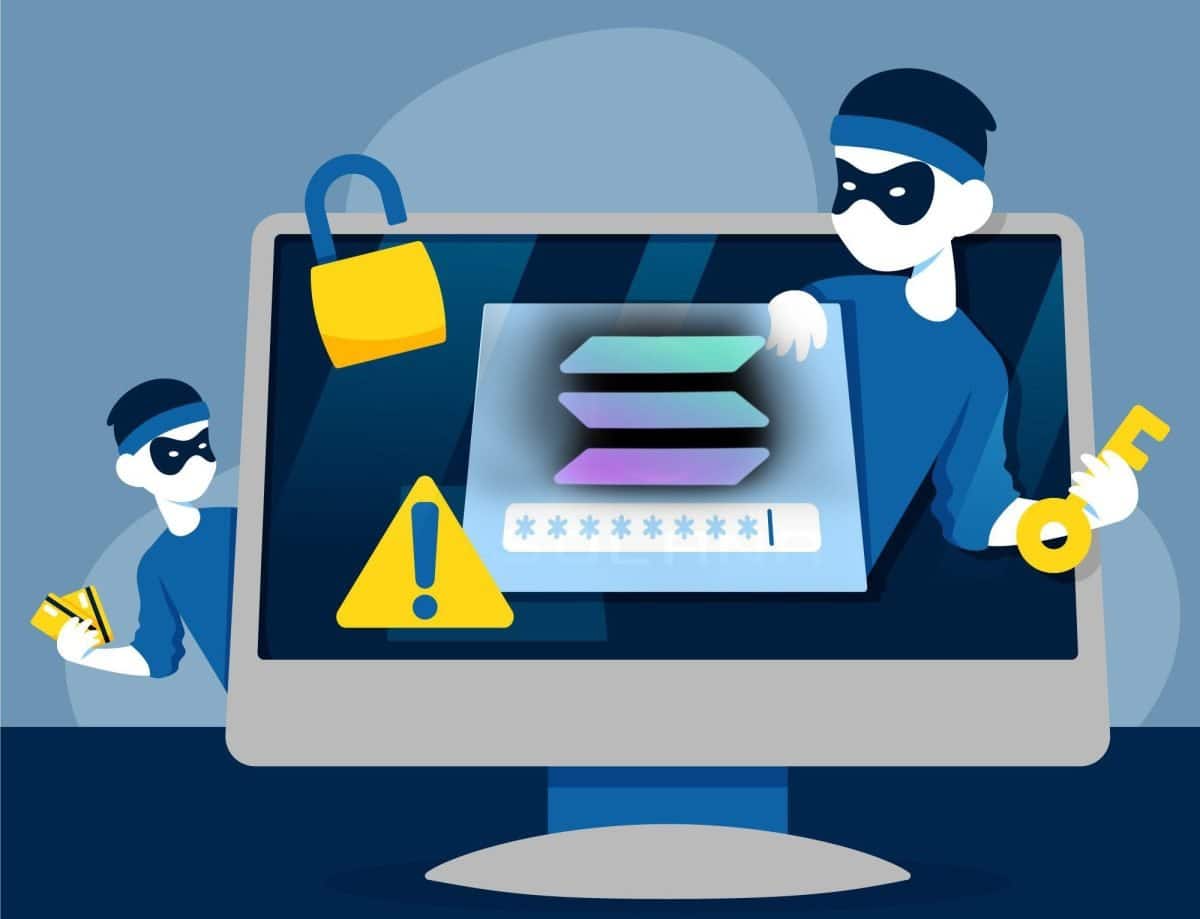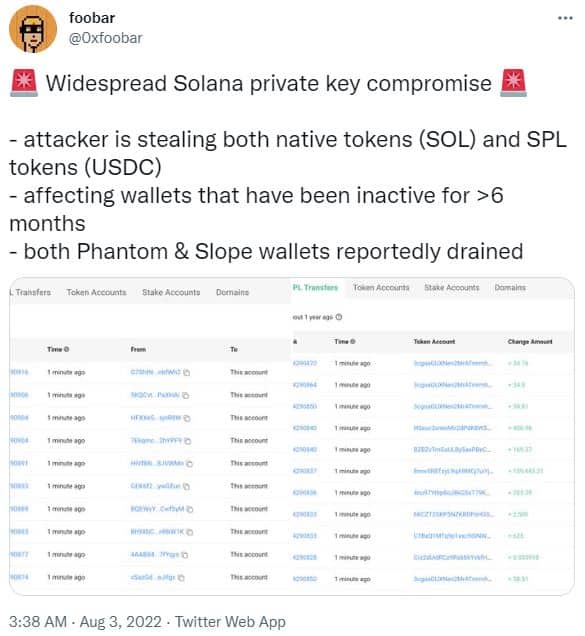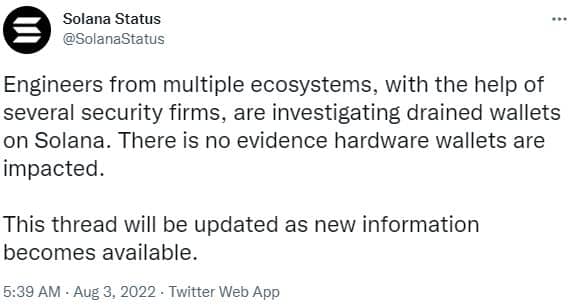The Solana network is the latest victim of a tragic, ongoing hack. Accordingly, over 8,000 wallets have been compromised and the numbers keep rising. The total loss count exceeds $7M in cryptocurrencies. Notably, most wallets had been allegedly inactive for over 6 months. Right now, the exact cause of the hack is unknown.

What should you know about the Solana hack?
Solana is having a tough season, and things only seem to get worse for the company. Today, August 3rd, the popular network fell victim to a massive hack.
Unfortunately, the hackers’ main target was Solana’s digital wallets. As a result, 8K digital wallets were drained in a matter of hours. The Twitter NFT community witnessed the tragic incident:

Looking into the transactions, it seemed that only wallets inactive for over 6 months were targeted. In addition, the anonymous culprit drained Slope and Phantom hot wallets. The attacker took SPL tokens, as well as SOL – Solana’s native token.
In summary, Solana lost at least $8M due to the hack.
What did Solana say about the incident?
Surprisingly, the network didn’t release any official statements yet. However, Phantom posted a Tweet regarding the incident:
“We are working closely with other teams to get to the bottom of a reported vulnerability in the Solana ecosystem. At this time, the team does not believe this is a Phantom-specific issue. As soon as we gather more information, we will issue an update,” the team wrote.
Meanwhile, the Twitter account Solana Status (run by Solana Foundation) posted several updates too.

How can wallet owners stay safe?
To begin with, Solana Status advises against using your seed phrase – even on a hardware wallet. Instead, create a new seed phrase for extra safety.
Has your wallet been compromised? You can complete this survey to help with the team’s hack investigation, Solana Status says.
The NFT community is also discussing potential solutions. In essence, many users advise Phantom or Slope wallet owners to revoke access to other apps. Other users claim that simply shutting down the computer or using airplane mode might help. These actions can limit upstream telemetry, although they’re far less effective than using hardware wallets.
However, the most widespread piece of advice is to switch to hardware wallets instead. If you’re unfamiliar with this choice, our digital wallet guide explains everything; you can check it out right here!
All investment/financial opinions expressed by NFTevening.com are not recommendations.
This article is educational material.
As always, make your own research prior to making any kind of investment.








